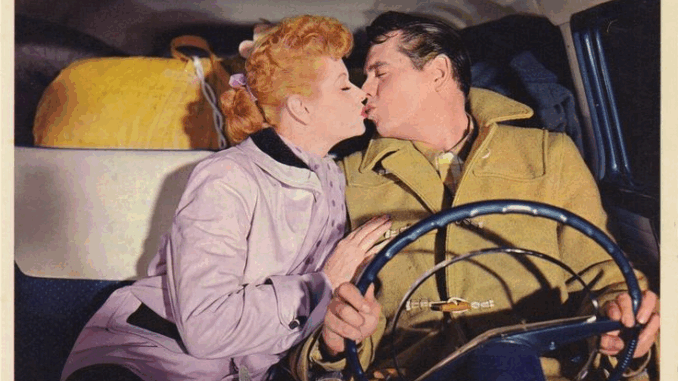
More than seventy years after its debut, I Love Lucy remains one of the most beloved and influential shows in television history. First airing in 1951, this groundbreaking sitcom not only redefined comedy but also set a new standard for what TV could be — entertaining, innovative, and deeply human.
A Revolutionary Beginning
I Love Lucy starred real-life married couple Lucille Ball and Desi Arnaz as Lucy and Ricky Ricardo. Set in a modest New York apartment, the show followed the hilarious adventures of Lucy — a housewife with big dreams and a wild imagination — as she constantly tried (and usually failed) to break into show business, often dragging her husband and friends into chaotic schemes.
From the start, I Love Lucy was different. It was one of the first sitcoms to be filmed in front of a live studio audience, and it was shot using multiple cameras — a technique still widely used in television today. Desi Arnaz also pioneered the idea of reruns and syndication, ensuring the show’s longevity long after its original run ended in 1957.
Lucille Ball: A Comedic Genius
At the heart of the show was Lucille Ball, whose physical comedy, facial expressions, and timing were nothing short of legendary. Whether she was stuffing chocolates in her mouth at a conveyor belt, stomping grapes in Italy, or impersonating a clown to sneak into Ricky’s show, Lucy’s antics were unforgettable.
But beyond the laughter, Lucille Ball was a trailblazer. She became the first woman to run a major television production company (Desilu), which produced hits like Star Trek and The Andy Griffith Show. Her influence extended far beyond her own show, opening doors for generations of women in entertainment.
A Cultural Touchstone
I Love Lucy was more than just funny — it reflected and sometimes challenged the norms of 1950s America. The Ricardos’ interracial marriage (Lucy was American, Ricky was Cuban) was rare on television. The show also featured Lucy’s real-life pregnancy, a controversial move at the time. Instead of hiding it, the writers incorporated it into the storyline, and more than 40 million viewers tuned in to see the birth of Little Ricky.
The show’s success was massive — topping the Nielsen ratings for four of its six seasons and earning five Emmy Awards. It was so popular that on Monday nights, water usage across the U.S. reportedly dropped during its airtime because everyone was glued to their screens.
A Legacy That Lasts
Decades after its final episode, I Love Lucy continues to captivate audiences of all ages. It airs in over 80 countries and remains one of the most-watched shows in syndication. Lucy Ricardo has become an iconic character, and the show’s timeless humor ensures that new generations continue to fall in love with her.
The series’ influence is still felt today — from modern sitcoms like Friends and The Big Bang Theory to the many comedians who cite Lucille Ball as their inspiration.
Conclusion
I Love Lucy isn’t just a piece of television history — it’s a masterpiece of storytelling, comedy, and heart. It made millions laugh, broke barriers, and proved that women could lead not only in front of the camera, but behind it. More than anything, it gave the world Lucy — a character who reminded us that chasing your dreams, no matter how silly, is always worth it.
